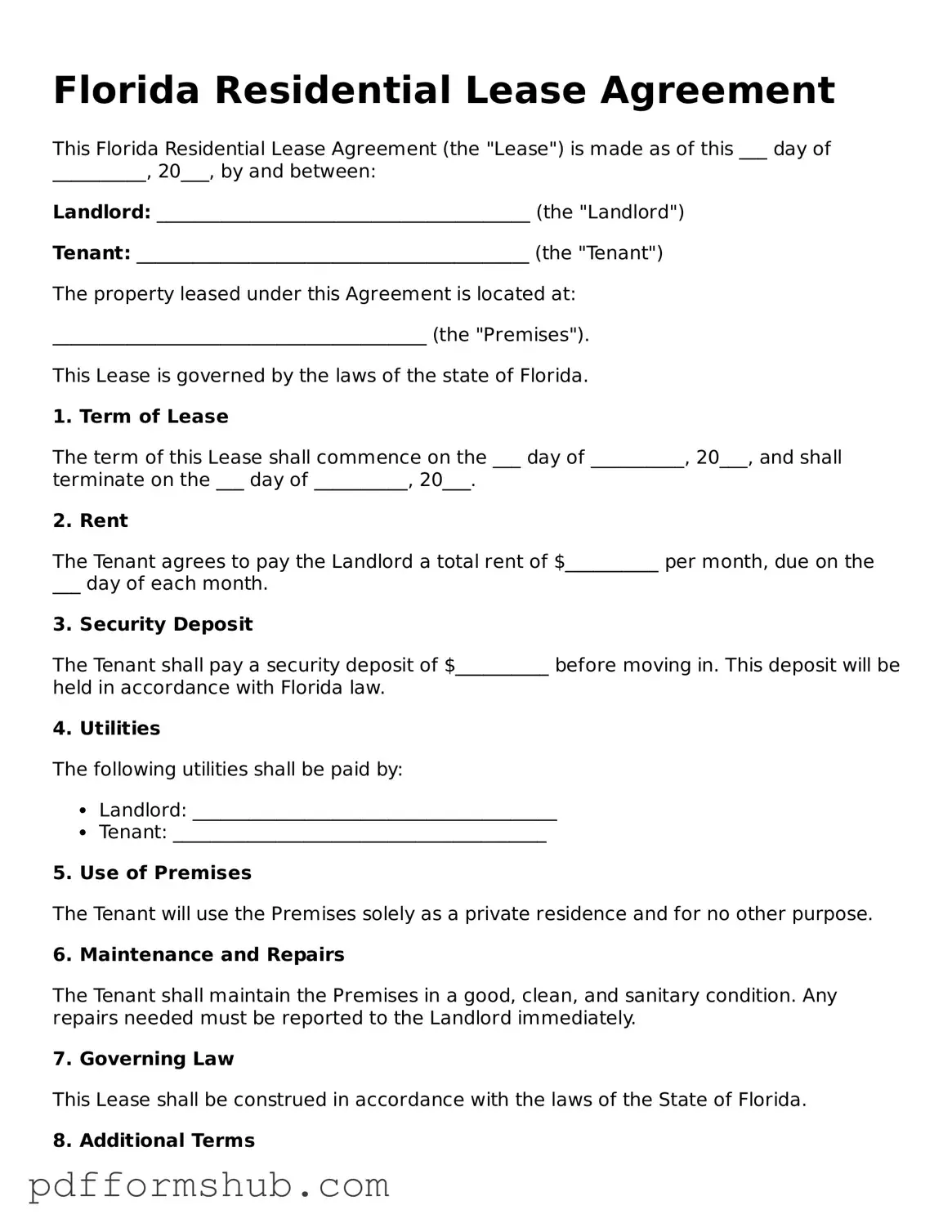Attorney-Verified Residential Lease Agreement Form for Florida State
The Florida Residential Lease Agreement is a legal document that outlines the terms and conditions between a landlord and a tenant for renting a residential property. This form serves as a vital tool to protect the rights and responsibilities of both parties, ensuring a clear understanding of the rental arrangement. For those looking to secure their rental agreement, consider filling out the form by clicking the button below.
Customize Form

Attorney-Verified Residential Lease Agreement Form for Florida State
Customize Form

Customize Form
or
Free PDF Form
Short deadline? Complete this form now
Complete Residential Lease Agreement online without printing hassles.